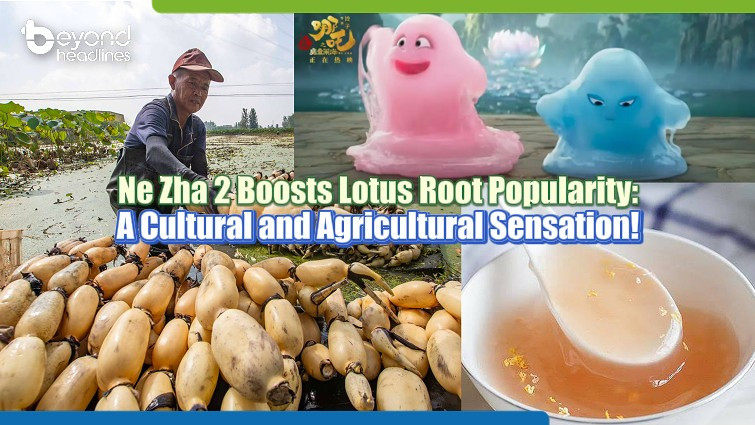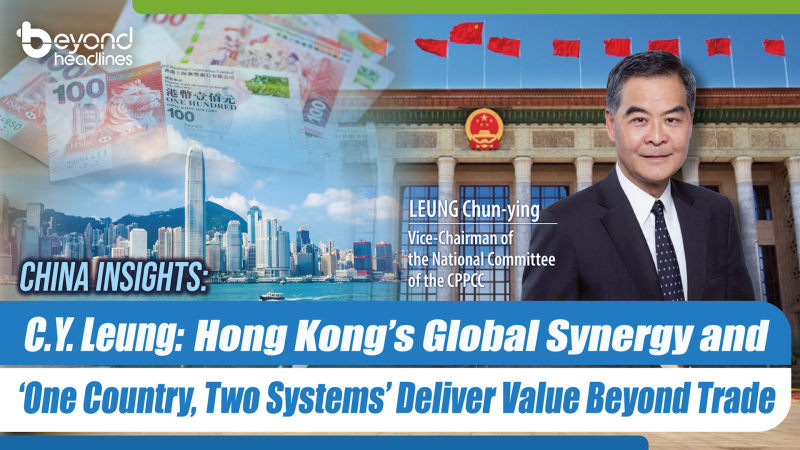Q1:
"Expanding domestic demand to drive economic growth" is one of the government’s key priorities this year. How can mainland provinces/cities collaborate with Hong Kong?
China is a very large country with a large landmark and very large population base. It's also the largest economy in the world. China has a pretty complete set of industrial sectors and sub-sectors. China is a perfect illustration of what a continental economy can be. There's a great deal of domestic production to be matched by a great deal of domestic consumption.
Hong Kong could help the producers, whether they are manufacturers or farmers, to provide the necessary consumer confidence in the quality of their products. Hong Kong is very good at providing third-party, independent quality assurance. We have, for example, a 61-year-old standard testing centre, which is non-profit-seeking. It already has four very large testing centres in four cities on the mainland.
And in the last couple of years, I've been encouraging them to spread their wings to cover other parts of the country. And they're now working for Ningxia, Shandong and Xinjiang. With enhanced consumer confidence, consumption will rise.
Hong Kong is very good at creating, promoting brands that are immediately recognized and appreciated by consumers…With Hong Kong's participation in the area of quality assurance and also branding, consumption will rise.
There is a lot of money, in the pockets and in the bank accounts of Chinese consumers. So just a question of enhanced consumption interests and also confidence.
Q2:
In recent years, you've spent much time traveling in mainland cities, promoting high-quality products like agricultural produce and Chinese herbal medicines, and helping them enter Hong Kong and international markets. What experiences can be learned from these efforts for high-level opening-up?
There's a lot of education and training to be done on the mainland for producers to understand the importance of third-party independent testing, which is essentially third-party independent quality assurance, and also the importance of branding. Similarly, there is a great deal of education for producers on the mainland to appreciate the importance of third-party trade services.
Hong Kong has a small population base of 7.4 million people, and therefore, we don't use that much goods and services. But Hong Kong is a very large international trade centre.
And trade is the second largest contributor to our GDP, to the equivalent of 20%. So what does Hong Kong do to create this value? Hong Kong sells for third parties and Hong Kong buys for third parties.
It is important for mainland producers to realise that you don't have to be good at everything. And you could leave the last mile in the production and sales process to Hong Kong. This is where Hong Kong can bring its resources and connections and attributes to bear.
Q4:
How can the Guangdong-Hong Kong-Macao Greater Bay Area leverage its advantages to drive innovation and new economic growth? What complementary strategies should Hong Kong adopt when collaborating with Guangdong cities?
We have had very, very good experiences working with Guangdong. The Hong Kong-Guangdong collaboration is, in my view, the best illustration of regional cooperation. In the past 47 years of the opening up and reform…both sides have resolved a lot of obstacles, particularly the kind of obstacles that exist between the “Two Systems” within the “One Country”.
Going forward, we need to have deeper reforms to remove most of the remaining obstacles between the “Two Systems”. Specifically, we're talking about the freer flow of people across the boundary, capital, data, and also goods. I think speed is of the essence. We all know that by fusing the Guangdong economy with the Hong Kong economy, you can release a great deal of energy for further economic growth.
We all know what to do because we know what the obstacles: I think the main question is actually sinking our teeth into these problems and actually carrying out the changes.
One of the things I keep mentioning is the fact that vehicles that are registered on the other side of the boundary that can be driven across the boundary into Guangdong still cannot choose freely which crossing they use, they are limited to a given crossing and that's not convenient.
And secondly, the Hong Kong-Macao-Zhuhai Bridge has been opened for a few years now and we're not seeing in the reverse direction mainland vehicles coming to Hong Kong. And going north from Hong Kong over the bridge into Zhuhai, I think the procedure could be further simplified.
So all these are resource flow issues, and I think we should carry forward the spirit that we had 47 years ago when the formal and open-door policy were launched.







![[China Travelogue] Spring in Full Bloom: Where Poetry, History & Global Hearts Meet in Suqian](https://img.beyondheadlines.hk/articles/cover/20250414/517aa203a875b3b93884818334a339e7.jpg!w800)




